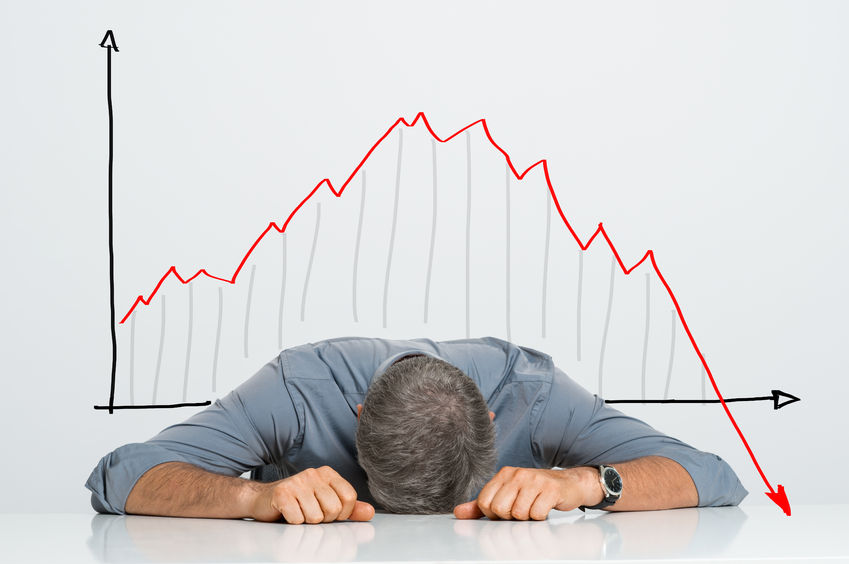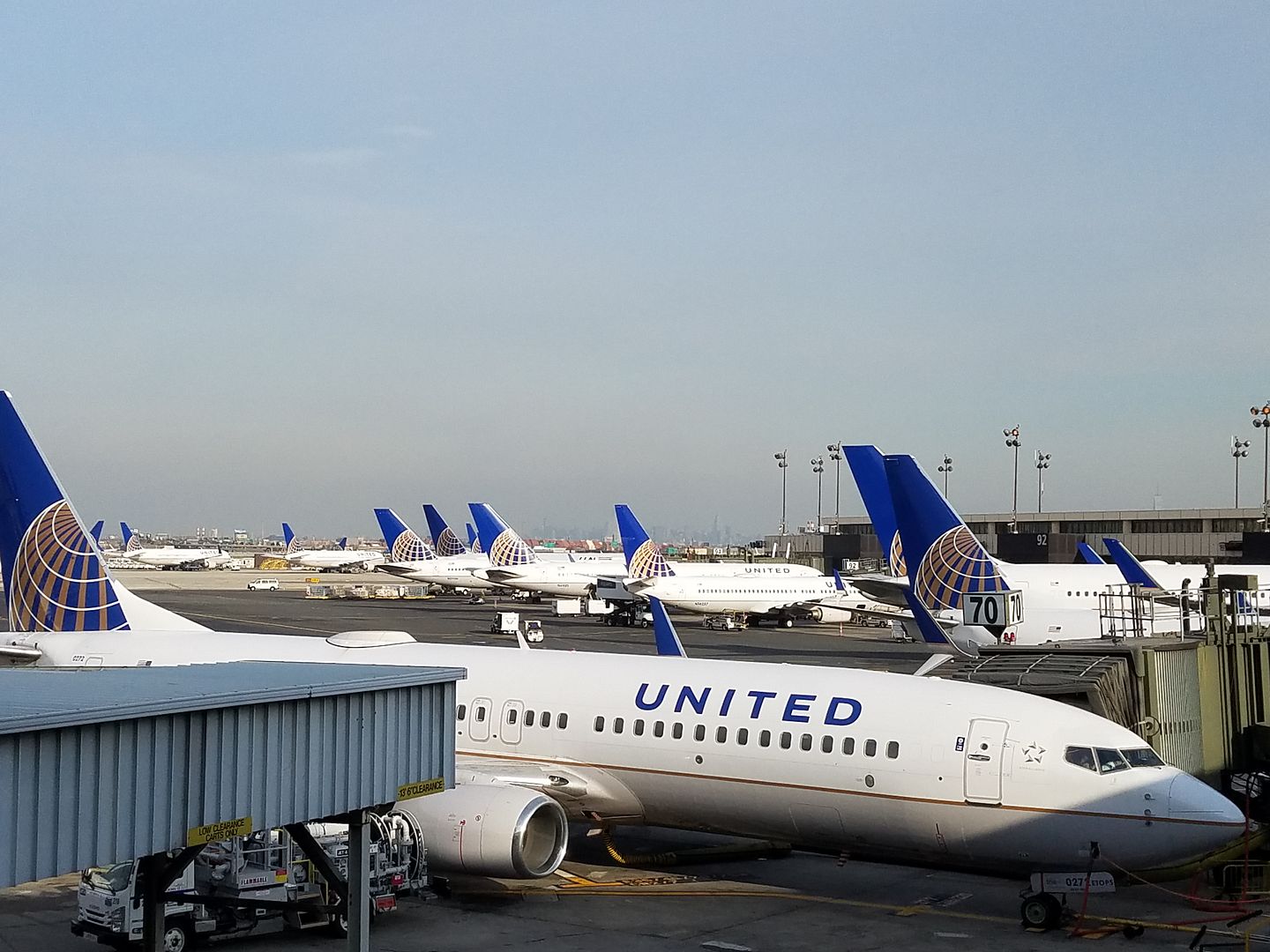United got hammered during their earnings call in October. They offered a number of metrics at an investor day a year ago, said that most of those efforts were on track, but refused to give any numbers to back up or elucidate on the claim.
Their stock is down about 15% in the last year, and about 12% since the beginning of the year.

Copyright: rido / 123RF Stock Photo
So United is now saying that they’re completing the $2 billion share buyback they announced in July 2016 and will begin buying back an additional $3 billion in shares going forward.
That’s great for earnings per share, but only because it reduces the denominator. It temporarily bolsters the demand for their stock. And it moves cash off the balance sheet, the airline has fewer assets, so the return on remaining assets appears higher – a nice metric. But it changes nothing about the underlying value of their business over time (except that they’re left with last cash to invest in the business).
They’ll say they’re “returning cash to shareholders” and doing it in a more tax-efficient way than paying dividends but what it signals is that they are not a growth company and lack opportunities to invest the cash at a high rate of return.
US airline stocks are largely trading stocks, not long term investments. Delta at least has a growth strategy involving major investments in and joint ventures with airlines around the world. They aren’t going to grow substantially in the U.S. market so they’re doing what they can to grow by de facto running airlines across Mexico, the UK, India and elsewhere. But United and American simply look to squeeze incremental revenue from existing customers without a clearly articulated vision for growth. (United also thinks they can squeeze incremental revenue from Chase in a new credit card deal, without making their mileage program more compelling to customers.)

And if there aren’t investable growth opportunities, the stock will bounce around but the company won’t grow in value substantially. Ultimately what matters is whether the airline is going to make more money in the future than they’re making today — and continue to grow or merely plateau (indeed, with downside risk). Today’s operations are baked into share price. That’s why analysts look at an airline’s pricing power (squeeze more money from current operations, with passenger revenue per available seat mile – PRASM – as a proxy) and the prospects of new business ventures (of which United has few).
Buybacks reinforce the short-term trading nature of the airline’s stock, but also underscore how few real investment opportunities there are for the airline which would drive future share price increases as the business grows.
Indeed contra airline executives who argue that markets aren’t properly valuing their stocks as ‘high quality industrials’ which would fetch bigger price-earnings ratios, markets are likely valuing airline stocks appropriately based on current conditions and available information. And big stock buybacks suggest that the money is better invested somewhere other than where it is now.


Is this fake news? I ask because one of the principles of the new tax package is big business will use extra money it in a way that grows the economy. So it just doesn’t make sense they would buy their own stock. This has to be fake.
@Amapas huh? first of all, the tax cuts to big business won’t have any positive effect on the growth of the economy – the s&p500 companies are already sitting on cash (and cash equivs) of almost $2Trillion (yes, trillion) – source: https://www.spglobal.com/our-insights/US-Corporate-Cash-Reaches-19-Trillion-But-Rising-Debt-and-Tax-Reform-Pose-Risk.html
Do you really think that the economy isn’t growing more because they want to have even more cash on hand before they start investing? *smh*
Probably the most sensible idea these clowns have had in years.
@zo It is called sarcasm.
It’s not like DAL and AAL aren’t in the midst of their own massive buybacks as well….
@zo – whoosh – right over your head…
If this contemptible tax giveaway to the rich passes, will be a banner year for share buybacks and artificially goosing earnings (great for the 1% ). Few, if any, jobs will be created and middle class will enjoy the benefit of another trillion added to the national debt so rich get richer. All those coal miners better learn how to scrub dishes, wash cars or mow lawns as those will be the only jobs they’ll find. The saddest thing is the rubes who vote for these scumbags never figure out they’re being swindled.
While I don’t have a problem with the premise of this post (i.e. that buybacks reflect lack of growth opportunities and airlines not being long term investments), I would contest an implication that (I think) you are making about buybaacks.
I’m not arguing that buybacks at current prices are the best allocation of capital (vs. capex, M&A, dividends, reducing leverage). Just think the case FOR buybacks wasn’t properly explained.
The impacts of Buybacks aren’t limited to the short term. Sure, the demand for the stock is increased in near term (more buyers than sellers) but the impact of dividing cash flow among fewer shareholders will remain in perpetuity so long as cash flow remains positive. I suppose positive cash flow is not a given in this industry over the long term.
Wouldn’t debt reduction also be a positive use of this cash? Reducing shareholder equity increases earnings per share but also hurts the debt/shareholder equity ratio. Non finance guy.
@John
Industrial companies (such as airlines) set target ratios for leverage (percentage of Debt relative to total Debt+Equity). Right now United have been reducing leverage pretty substantially since the crisis and have received multiple credit upgrades in the last few years (but are still two notches below investment grade). All else equal, buybacks result in increased leverage, but United’s debt has grown much slower than free cash flow so leverage has fallen.
The basic tradeoff is that paying down debt makes the companies less profitable (reduced tax expense and takes away capital that could be invested in other profit generating assets), but gives the company more flexibility for a cyclical slowdown (oil spike, unexpected economic slowdown, etc.) or higher interest rates.
Capital is still very easy to raise right now (despite central bank ending QE and tightening rates) and United’s bond maturities are staggered pretty well, but those conditions are not guaranteed to last forever.
@Evan, thanks for that explanation. I’m surprised that reducing interest expense especially where a company has (apparently) no good options for investment makes it less profitable. It appears that UA has no hope of ever being considered investment grade or paying dividends. I assume that being investment grade and paying a dividend would help the share price, but then execs probably are compensated on EPS goals not share price.